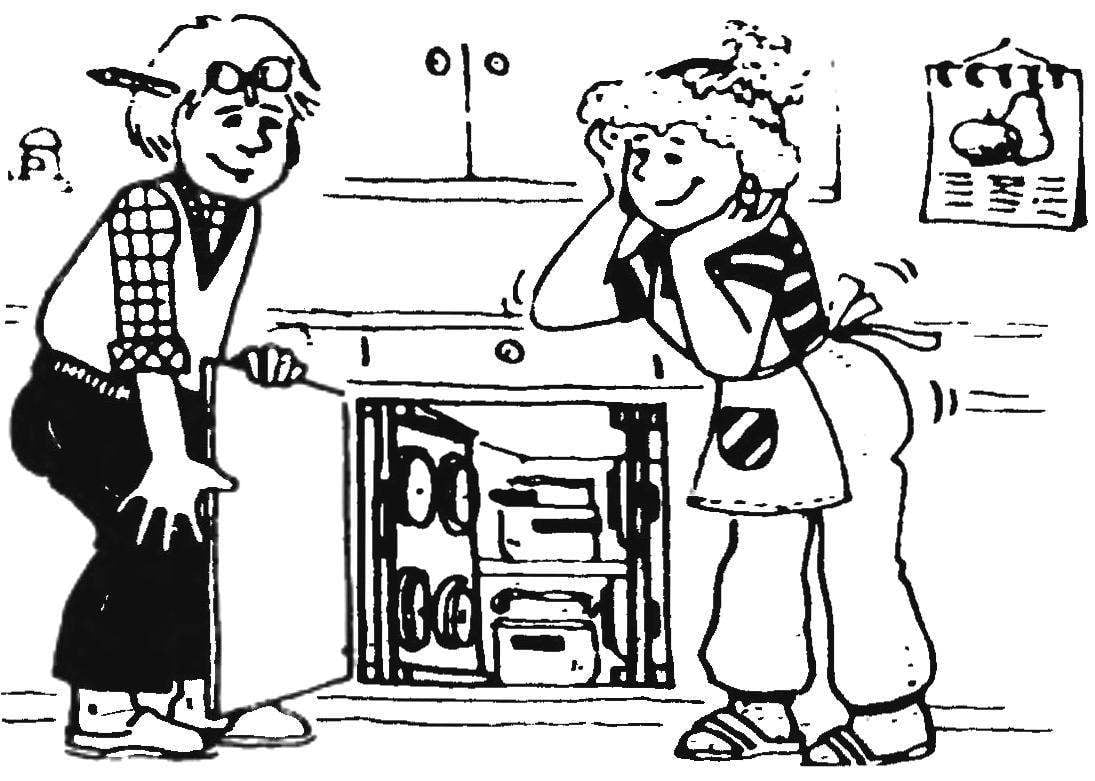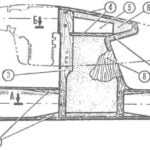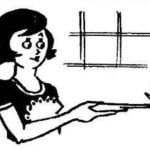 A neat housewife in the kitchen most of mesh cover: if different-sized pots comfortable to hold one in one, they cover thus form the unstable hill, and then crumbling with each careless movement.
A neat housewife in the kitchen most of mesh cover: if different-sized pots comfortable to hold one in one, they cover thus form the unstable hill, and then crumbling with each careless movement.
However, this inconvenience is easily removed if embedded in the base, which holds pans, a kind of hanger for storage lids. It is a drawer with holes, similar to those that make metal ears for the suspension, for example, shelves. Cover inserted them in their pens and not getting in the way, occupying each its permanent location.
And to ensure this consistency will be the following sequence of steps in the manufacture of the panel-racking.

1. Picking up caps of different sizes, stacked them on the prepared plate so that they took the optimum area of the panel, and outlined each, thus the future permanent seat each cap.

2. Then turn each cap and as well outlined on the panel the contours of their pens. It remains to be drilled under them through holes and to cut them using krupnosortnogo round file or a jigsaw to get shown the groove. If we now insert the pen cap into the hole and slightly move down and the cover will remain hanging on the bar firmly and securely.

3. Having prepared thus the panel, is to attach the bars to the guides (at the top and bottom or only at the bottom — they also play a role and a kind of sled), as well as handle — for easy subsequent extension of the racking table supports.

4. The relevant guides are mounted inside the underframes. Depending on the solution used in the base space such rails can be installed near a wall or both.

5. In a simplified embodiment, the bar hanger may not be their guides; in this case, the guide bars, ensuring its retention with lids and subsequent extension, shall be installed only in base. The place of their attachment with a space from walls must consider the overall thickness of the hangers, together with protruding to the walls of the pens.
Optionally, if the covers too much, they can be positioned on both sides of the panel. In this case, in addition to established inside the underframes bars-necessary guides and your guides on the panel-hanger to the last, having the increased mass due to the increased caps, not traumatic in the corresponding panels of table supports.
It only remains to suggest that the panel-racking do not have to be near the walls podstolya: it may take a top position, over pots, or on the door cabinets. The only thing with these options as a guide, you will need not just bars and slider — like those used in furniture for sliding glass doors.
B. RAWSKI



